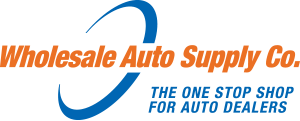
Thanks to the rise of ecommerce, comparison-shopping has become something of a national pastime. In business, though, price comparisons are critical to effective cost management and resource allocation.
The fact is, pricing and “deals” that sound too good to be true generally are. In a layman’s world, a shopper can easily tell if a “bargain” falls short: Maybe those generic paper towels are ineffective at wiping up kitchen spills, or that cheaper box of cereal doesn’t hold as many servings.

In the automotive industry, though, differences between what you want and the cheaper purchase you might be tempted to make aren’t as readily apparent. There are quantity and volume questions, along with esoteric details about composition or chemical makeup, that fall outside the purview of even knowledgeable procurement managers.
This is why you need a supplier partner that you can trust to act as a gatekeeper, and that will perform price comparisons on your behalf to ensure you get the best value for your money. Here are the three key problems they can help you avoid.

Ineffective Product Comparisons
The product that seems to be cheaper could actually be a slightly different product — but one that could perform with very different results. For instance, some cleaning supplies are shipped in a concentrated form that is diluted by the buyer. A much cheaper price could indicate that the product is a weaker concentration — which means that your savings could evaporate if you need to use two or three times as much to achieve the same result.
Similarly, a product intended for household rather than industrial use might cost less upfront, but could cause more of a headache — and expense — in the long run. Chemicals or fluids might be less potent or at a weaker concentration. Equipment might not be as durable or come with a limited or restricted warranty than a commercial-grade version. If you have to replace or reorder more frequently, you could quickly cancel out any perceived savings. In some cases, a cheaper version might not work at all for your needs.
In a worst-case scenario, you might even wind up with a counterfeit version of the item you ordered. Although this is primarily a problem when purchasing through unvetted sources, it is not unheard-of for counterfeit products to slip into the supply chain. Several years ago, shipments of a counterfeit refrigerant that could wreck refrigerant systems using it, harm workers exposed to it and even potentially ignite prompted the manufacturer of the real product to issue a warning. Employee injury or equipment damage can be catastrophically expensive as well as extremely stressful.
A vendor with a focus on delivering you value, should be conducting regular needs assessments to maximize your cash flow.

Hidden Costs
Even if you’re 100% sure that the great deal you saw is for the exact same product, that doesn’t mean other sellers can’t sneak in hidden costs. One big culprit is shipping costs. If you have an ongoing relationship with a supplier or vendor, you’ll have an agreement in place to avoid fluctuating shipping costs or, ideally, you work with one that offers free shipping.
It’s also typical that deeply discounted supplies are often packaged and sold in much greater quantities. While hitting your local warehouse club for jumbo packs of batteries or condiments makes sense for a lot of households, buying in bulk can throw a wrench into business accounting and cash-flow practices. Until it is eventually used, all of that product is essentially locked-up operating capital — and if you incur any costs to store it until you use it, that’s a separate expense to keep in mind.
So-called dynamic pricing has revolutionized the way we shop for things like airline tickets, but here-today-gone-tomorrow discounts aren’t a practical way to buy parts or supplies for a dealership. Rather than establishing a relationship, your personnel resources are wasted if your procurement department starts from scratch in search of a new vendor every time you need to place an order.

Administrative Overhead
In fact, working with the right vendor can save you money by performing services for which you otherwise would entail significant labor costs. For instance, a full-service vendor will undertake pricing audits on your behalf. This time-intensive task entails reconciling item identification codes from different sellers — no small feat — so that you can get a true apples-to-apples comparison.
If you do uncover a better price, you should have a price-matching guarantee in place (although such offers might be restricted in the case of online-only sellers that can’t be easily authenticated). Speaking of guarantees, a reputable seller can offer lifetime guarantees you’re certainly not going to get from an anonymous online storefront.
And finally, a supplier that knows your needs and your expense-management pain points should be able to provide you similar, more cost-effective alternatives for high-priced supplies or equipment. Whether you need desk chairs or heavy-duty cleaning supplies, they will help you find the best fit for your business and budget.
Want to learn more? Visit www.wascoonline.com/why-wasco and then request a free analysis for your business.







